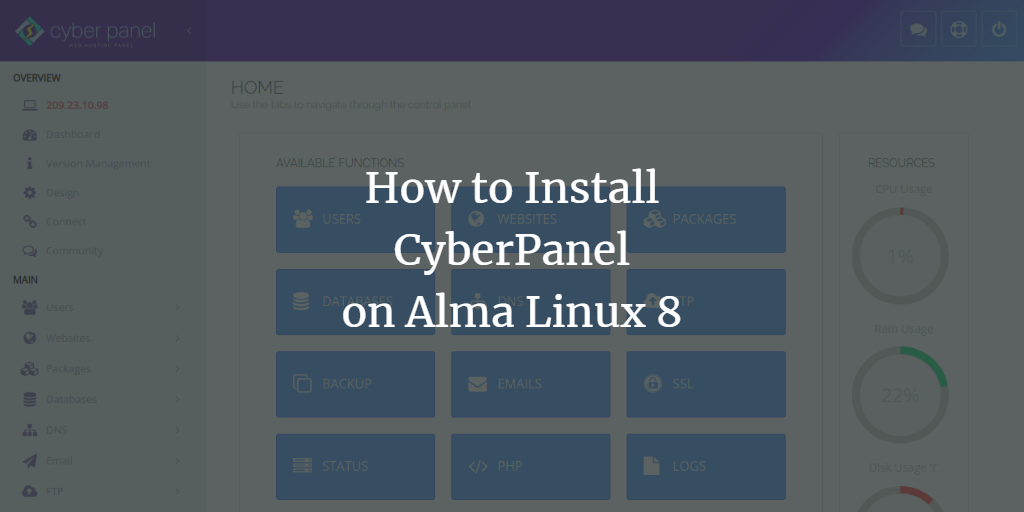CyberPanel is a free and open-source web hosting control panel that empowers you to manage your hosting server with ease. Serving as a cPanel alternative, it operates on the OpenLiteSpeed server. CyberPanel offers robust features such as SSL certificate management, an intuitive file manager, web application firewall configuration, DNS management, email management, and more. Uniquely, CyberPanel natively supports both OpenLiteSpeed and LiteSpeed Enterprise.
In this guide, we’ll walk you through the installation process for CyberPanel with OpenLiteSpeed on Alma Linux 8.
Prerequisites
- A server running Alma Linux 8.
- Root access to the server.
Install CyberPanel
CyberPanel offers an automatic installation script, simplifying the installation process considerably. Execute the following command to download and run the script:
sh <(curl https://cyberpanel.net/install.sh || wget -O - https://cyberpanel.net/install.sh)
You’ll see a prompt to begin the CyberPanel installation:
Initializing...
Fetching latest data from CyberPanel server...
This may take few seconds...
Branch name fetched...v2.1.2
Checking root privileges...
You are running as root...
Valid IP detected...
Checking server location...
Desktop OS not detected. Proceeding
System: AlmaLinux 8 detected...
Checking virtualization type...
Initialized...
CyberPanel Installer v2.1.2
1. Install CyberPanel.
2. Exit.
Please enter the number[1-2]: 1
Enter 1 and press Enter to begin installation. Choose from the following options presented:
CyberPanel Installer v2.1.2 RAM check : 111/3736MB (2.97%) Disk check : 3/80GB (4%) (Minimal 10GB free space) 1. Install CyberPanel with OpenLiteSpeed. 2. Install Cyberpanel with LiteSpeed Enterprise. 3. Exit. Please enter the number[1-3]: 1
Select option 1 to install CyberPanel with OpenLiteSpeed and continue as follows:
Install Full service for CyberPanel? This will include PowerDNS, Postfix and Pure-FTPd. Full installation [Y/n]: Y
Choose Y for a full installation. You’ll be prompted with the following:
Full installation selected... Do you want to setup Remote MySQL? (This will skip installation of local MySQL) (Default = No) Remote MySQL [y/N]: N Local MySQL selected... Press Enter key to continue with latest version or Enter specific version such as: 1.9.4 , 2.0.1 , 2.0.2 ...etc Branch name set to v2.1.2 Please choose to use default admin password 1234567, randomly generate one (recommended) or specify the admin password? Choose [d]fault, [r]andom or [s]et password: [d/r/s] s Please enter your password: Password: Confirm Password: Do you wish to install Memcached process and its PHP extension? Please select [Y/n]: Y
Enter your desired CyberPanel password, confirm it, and press Enter. Following the installation, you should see:
Install Memcached process and its PHP extension set to Yes...
Do you wish to install Redis process and its PHP extension?
Please select [Y/n]: n
Would you like to set up a WatchDog (beta) for Web service and Database service ?
The watchdog script will be automatically started up after installation and server reboot
If you want to kill the watchdog, run watchdog kill
Please type Yes or no (with capital Y, default Yes):
Visit: https://209.23.10.98:8090
Panel username: admin
Panel password: *****
Visit: https://209.23.10.98:7080
WebAdmin console username: admin
WebAdmin console password: JoQJdtQsRxGU7Xnk
Visit: https://209.23.10.98:8090/rainloop/?admin
Rainloop Admin username: admin
Rainloop Admin password: BQ6n0UbBWdFROe
Run cyberpanel help to get FAQ info
Run cyberpanel upgrade to upgrade it to latest version.
Run cyberpanel utility to access some handy tools.
Website : https://www.cyberpanel.net
Forums : https://forums.cyberpanel.net
Wikipage: https://docs.cyberpanel.net
Docs : https://cyberpanel.net/docs/
Enjoy your accelerated Internet by
CyberPanel & OpenLiteSpeed
###################################################################
If your provider has a network-level firewall
Please make sure you have opened the following ports for both in/out:
TCP: 8090 for CyberPanel
TCP: 80, TCP: 443 and UDP: 443 for webserver
TCP: 21 and TCP: 40110-40210 for FTP
TCP: 25, TCP: 587, TCP: 465, TCP: 110, TCP: 143 and TCP: 993 for mail service
TCP: 53 and UDP: 53 for DNS service
Would you like to restart your server now? [y/N]: y
Access CyberPanel
Access the CyberPanel interface at https://your-server-ip:8090. Enter your admin username and password on the login page displayed below:
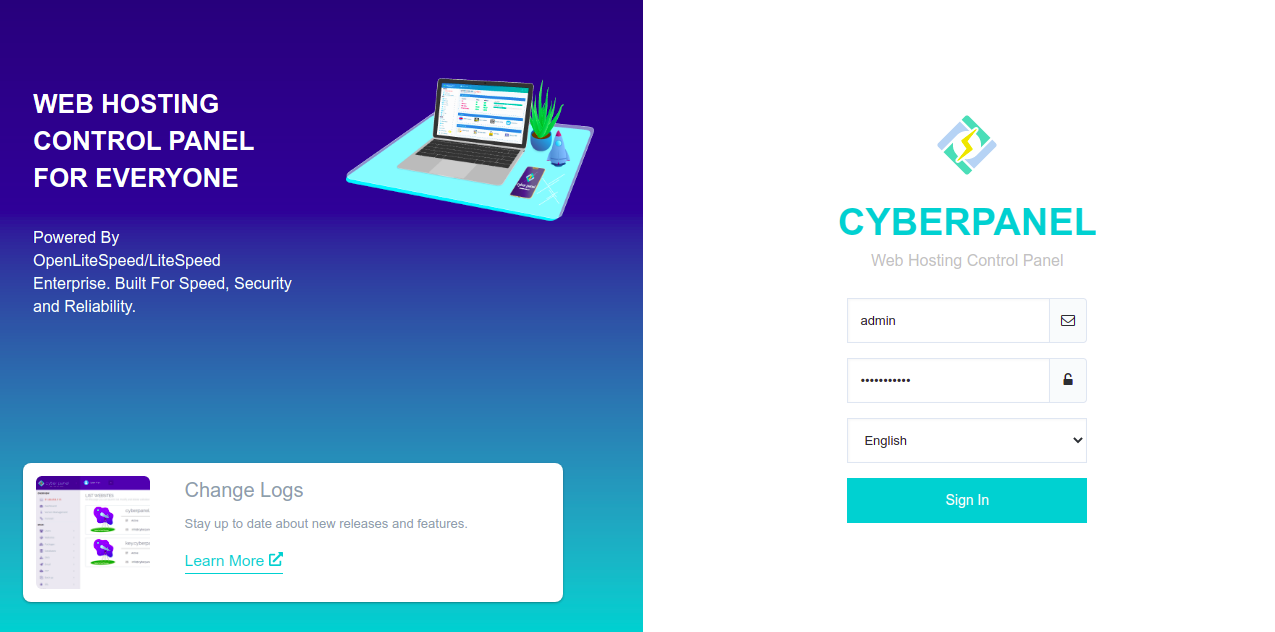
Upon signing in, you’ll see the CyberPanel dashboard:
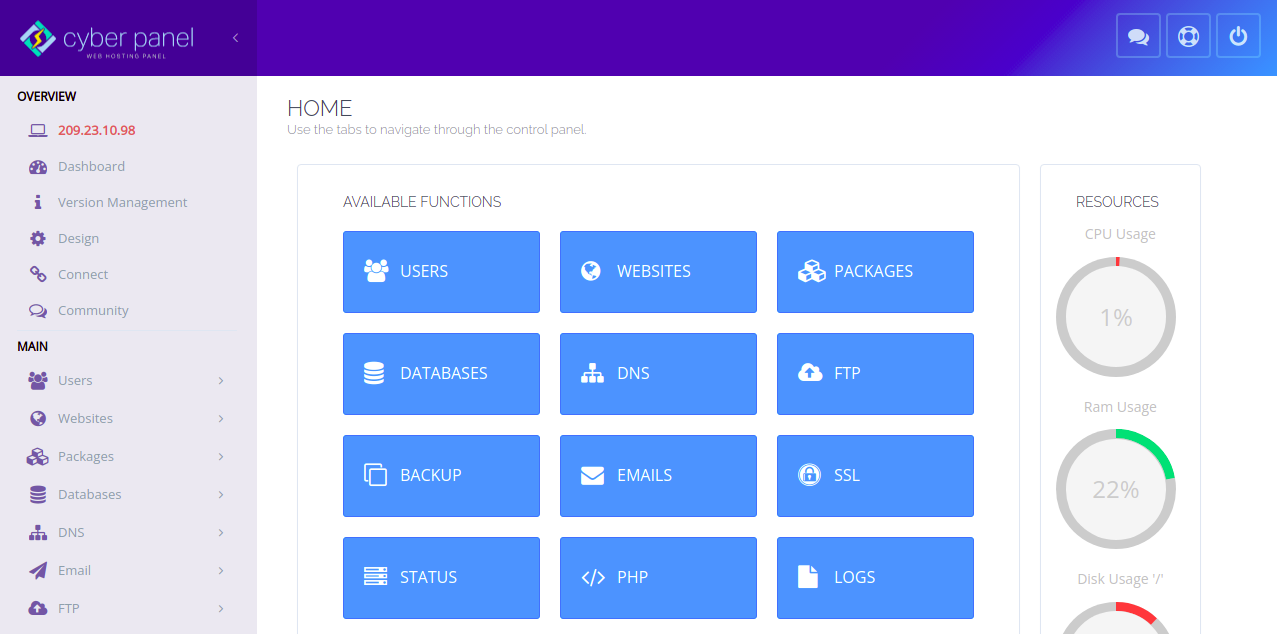
You can also access the OpenLiteSpeed web interface at https://your-server-ip:7080. Upon signing in, you should see the following OpenLiteSpeed dashboard:
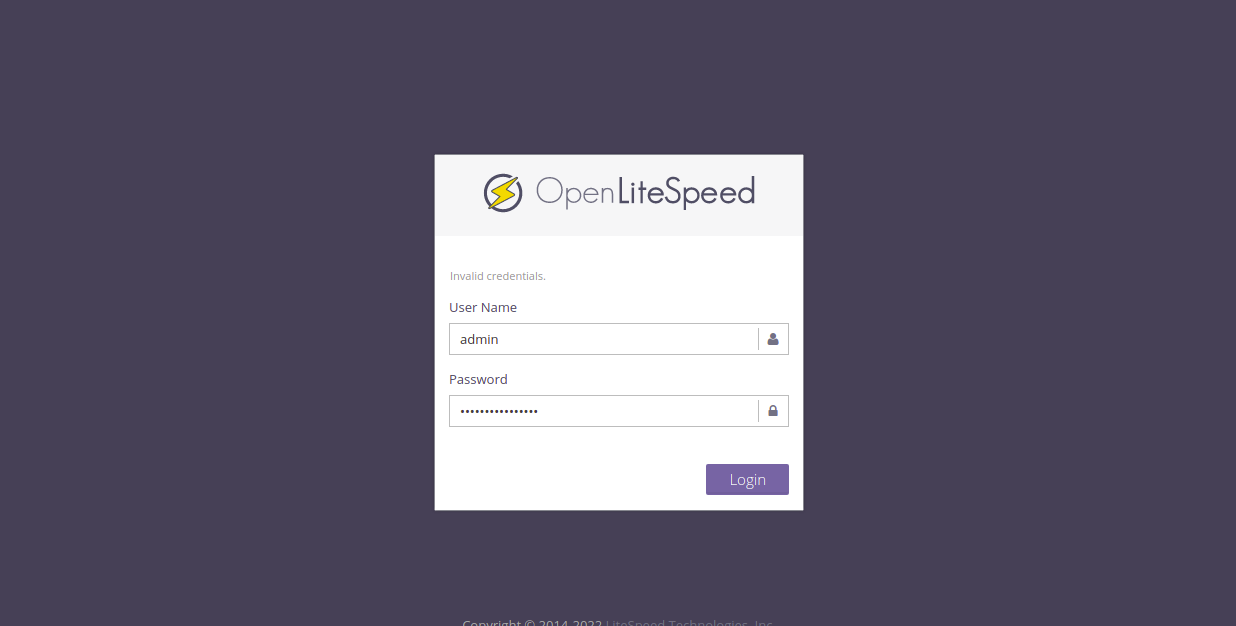
Enter your credentials here to access the OpenLiteSpeed dashboard:
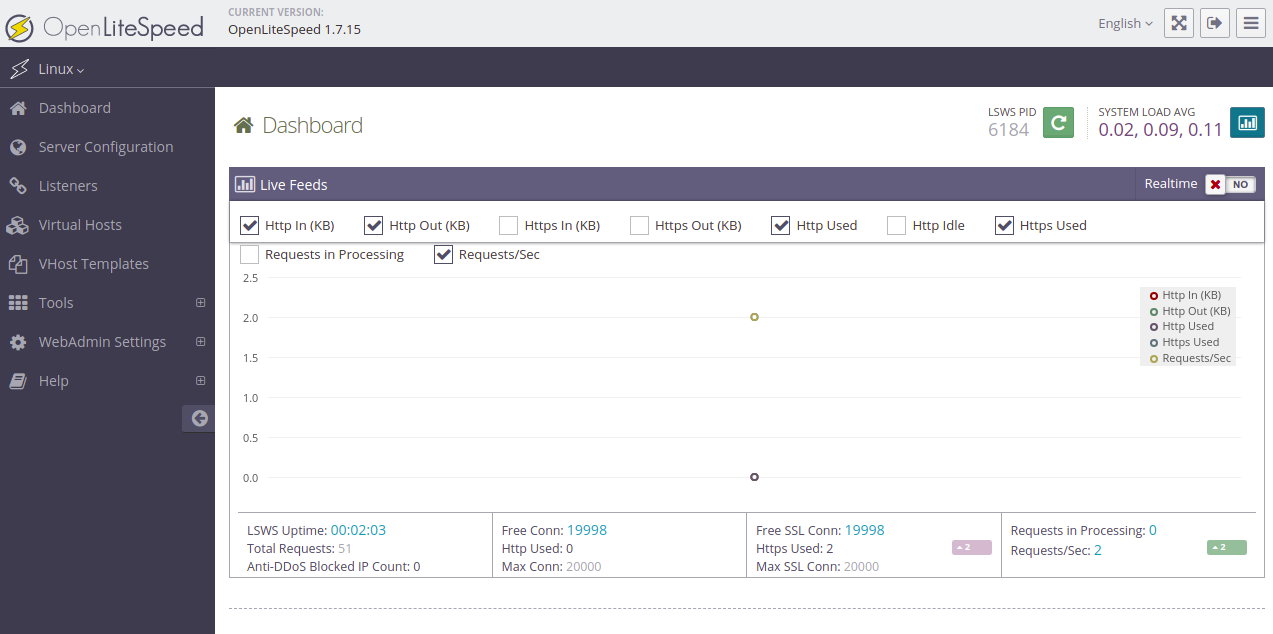
Conclusion
Congratulations! You have successfully installed CyberPanel on Alma Linux 8. You can now begin managing your websites through the CyberPanel dashboard. If you have questions, feel free to ask.
FAQ
What is CyberPanel?
CyberPanel is a free and open-source web hosting control panel that simplifies server management with a variety of integrated tools and features.
Why should I choose CyberPanel?
CyberPanel is the only control panel that natively integrates with OpenLiteSpeed and LiteSpeed Enterprise, providing enhanced performance features right out of the box.
Can I use CyberPanel on any operating system?
CyberPanel can be installed on various Linux distributions, including Alma Linux, CentOS, and Ubuntu.
What ports need to be open for CyberPanel?
You need to open the following ports:
- TCP: 8090 for CyberPanel access
- TCP: 80, TCP: 443, and UDP: 443 for web server
- TCP: 21 and TCP: 40110-40210 for FTP services
- TCP: 25, TCP: 587, TCP: 465, TCP: 110, TCP: 143, and TCP: 993 for mail services
- TCP: 53 and UDP: 53 for DNS services
How do I access CyberPanel after installation?
Access CyberPanel via your web browser using the URL https://your-server-ip:8090.
